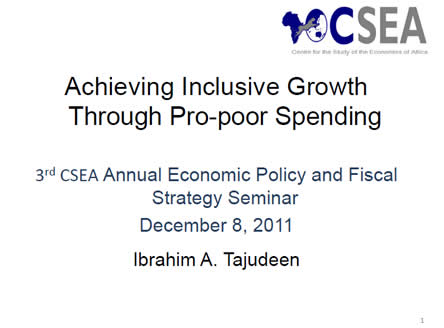Author:Ibrahim A. Tajudeen
Publication Date: December, 2011
Document Size:18pages
Objectives
- This study aims to achieve the following objectives;
- Determine whether Nigeria is experiencing economic growth.
- Determine the nature of the growth in Nigeria inclusive (Pro-poor) or exclusive (pro-rich)?
- Recommend ways to achieve inclusive growth or to sustain existing inclusive growth emphasize Pro-poor spending.
Concepts
Inclusive Growth
- growth that enables the poor to actively participate in and significantly benefit from economic activities.
- growth that reduces the level of poverty by providing everyone the minimum basic capabilities
- Labour absorbing, mitigate inequalities, facilitate income and employment generation for the poor, particularly women (ADB,1999)
Pro Poor Spending
- reduces the level of poverty, inequality and empowers females.
- focuses on the development of key social and

